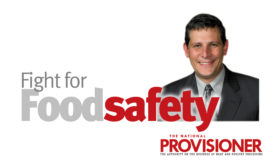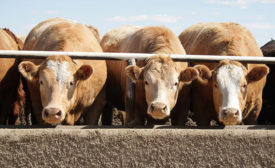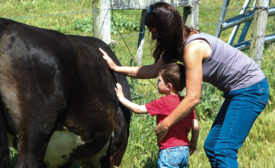Expert Commentary
Farm to Plate
Farm animal welfare: Facts over feelings
Science and experience must also play a role in the advancement of humane agriculture.
Read More
Sustainability
Sustainability and material assessments: So many programs, so little time...
Use materiality assessments to ensure your company targets and defines its sustainability focus around stakeholder engagement.
Read More
Regulations & Legislation
FSIS guideline for retail delis on controlling Listeria monocytogenes
Read MoreGet our new eMagazine delivered to your inbox every month.
Stay in the know with The National Provisioner's comprehensive coverage of the meat and poultry processing industry.
SUBSCRIBE TODAY!Copyright ©2024. All Rights Reserved BNP Media.
Design, CMS, Hosting & Web Development :: ePublishing
















